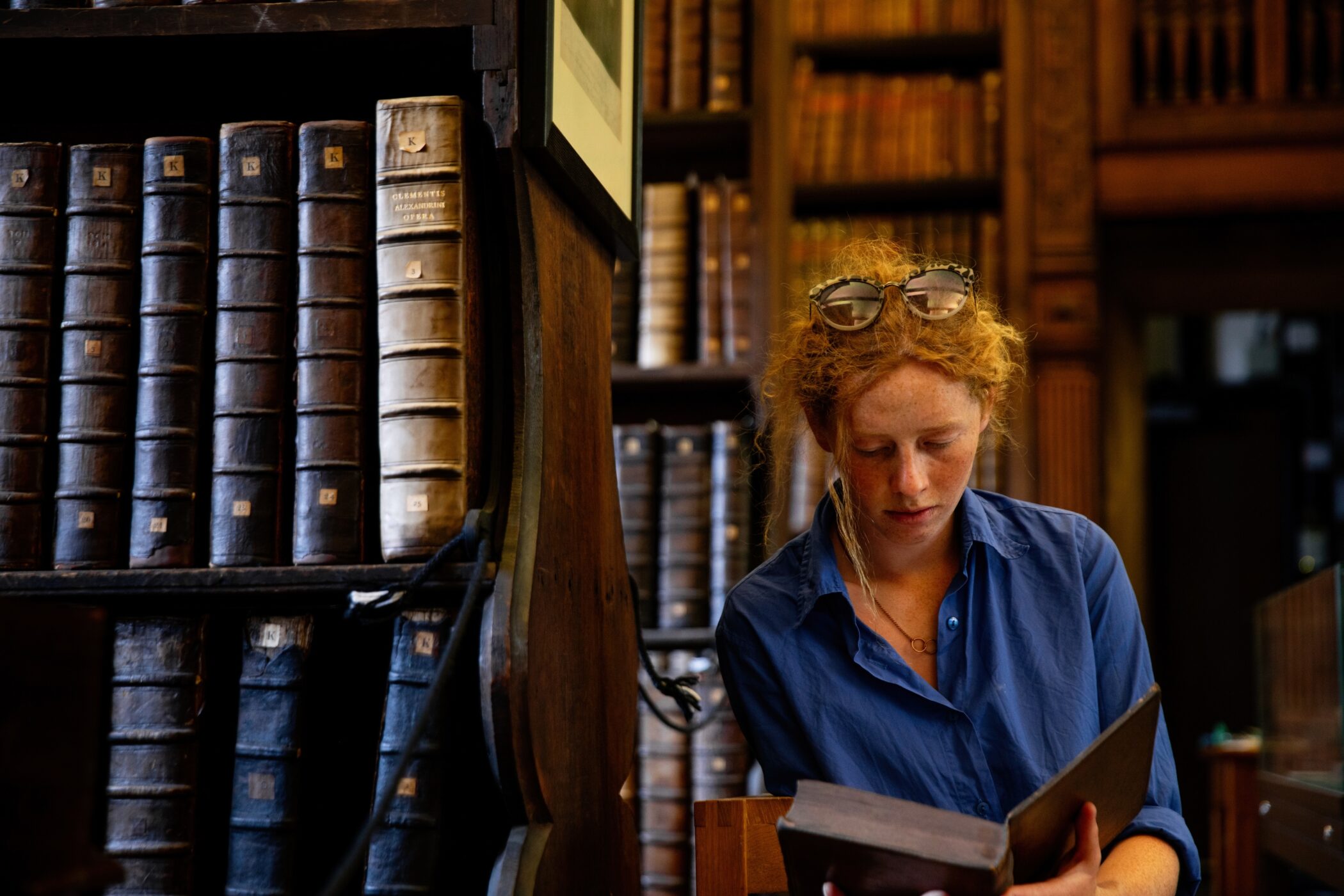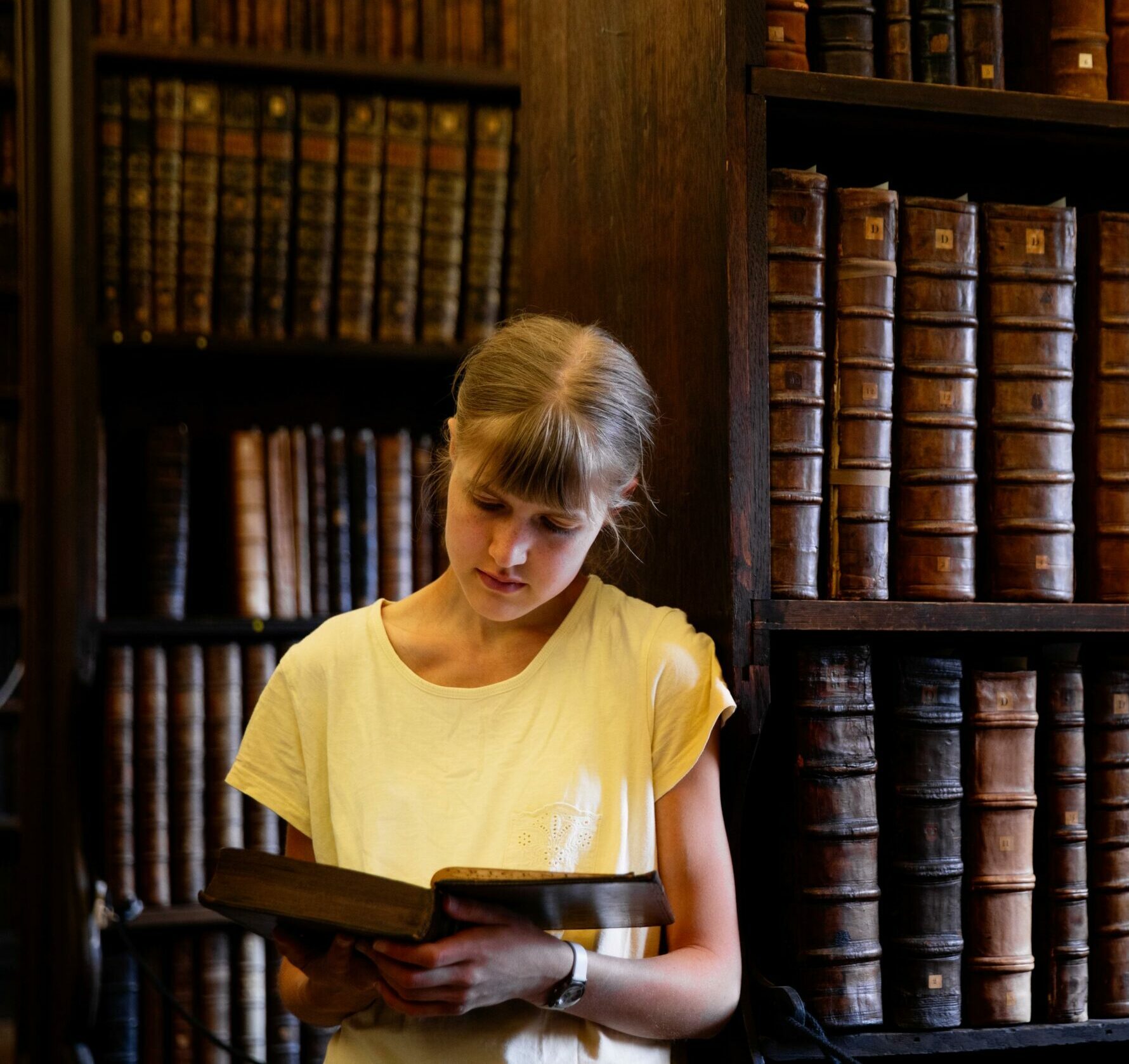Studying English at Cambridge
The Faculty of English at the University of Cambridge is an innovative and world-leading department, currently ranked Number 2 in the UK for English, according to The Complete University Guide 2025. You will be taught by academics who are active researchers. They publish books and scholarly articles, and write and speak regularly for the wider public and media. If you have a passion for literature and the intellectual curiosity to ask probing questions, then this course is for you. You’ll get a strong grounding in literary works written in English. This means you can study American and post-colonial literature alongside British literature.
The course is divided into Part IA (Year 1), Part IB (Year 2), and Part II (Year 3). For more information about the course structure, see the faculty webpage.
What can I do with a degree in English?
Graduates from the English degree at Cambridge go on to work in a wide variety of fields. When you graduate, you’ll have a range of transferable skills valued by employers, including critical thinking, close reading and analysis, ability to synthesise information and write compellingly. In recent years, our graduates have gone on to successful careers in sectors including academia, arts and recreation, communications, publishing, teaching, libraries and archives, journalism, theatre and film, the charitable sector, the civil service, law, and finance. Many others continue on to further study at Masters or PhD level.
For more information, please visit the University Careers Service website.

Studying English at St Edmund’s College
Every year St Edmund’s has a small but vigorous group of people reading English as mature undergraduates or as affiliated students. Their ages usually range from early twenties to mid-thirties, but people who are older than this are welcomed in the University, College and Faculty; they not only derive great benefit from reading English but often have made a considerable mark in the College and Faculty. Coming as they do from a wide variety of backgrounds, our students bring many varied skills to the College, and to their subject. The degree results of St Edmund’s students in English have regularly been excellent, and have included more than the college’s statistically fair share of Firsts.
The college offers several spaces where you can study and work on your essays including the Paul Luzio Library building, the Norfolk Library, study desks in the Mount Pleasant Halls Common room, the comfortable couches of the CR, in Edspresso, our café, or the benches in our lovely apple orchards!
We also have six study rooms (2 in the Luzio Building, 2 in Norfolk Building, and 1 in Mount Pleasant Halls), where college supervisions typically take place, and which can also be booked by students for their private study time or group projects.
Our college also has an extremely supportive Welfare and Wellbeing Department, which is happy to lend an ear and provide support should a student feel anxious or overwhelmed with the academic year.
How to Apply
Applications for all courses are made through UCAS. You must apply by 15 October 2025 to be considered for entry in October 2026.
We accept applications for English in both the October application round and the January application round. The January application round is specifically for candidates applying for certain subjects at the three mature Colleges at Cambridge (Hughes Hall, Wolfson, and St Edmund’s). The January round is particularly suited to those applicants taking one-year courses who may not have covered enough of the course content to apply in October, but are able to make a competitive application by January. The deadline for applications for the January round is 14 January 2026 for 2026 entry.
As a mature College, we recognise that our applicants come to us from a diverse range of educational backgrounds and may have studied a long time ago. However, we would expect evidence of formal study within the last two or three years as evidence of an ability to cope with the challenging academic nature of a Cambridge course.
Requirements
Written work
Admissions Assessment
Interviews
Deferred entry
Affiliated students
What is a typical Term’s work
Weekly supervisions taught in Colleges are the focal point of the academic week, providing personal supervision and the opportunity to debate with and learn from senior academics and subject leaders. They are usually taught one-on-one or in small groups. You will write essays or prepare other materials for these sessions, in which you will receive constructive feedback on your work and further guidance.
You are taught in a mix of college based small group supervisions and Faculty lectures and classes. You typically attend at least six hours of lectures or seminars, and two to three hours of individual, paired or small-group supervision each week. You normally write one or two short essays per week which you then discuss with your supervisor.
People
- Dr Victoria Condie, Director of Studies


